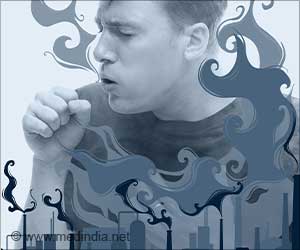Adult mice engineered to have more newborn neurons (neurogenesis) in their brain memory was accurate at discriminating between similar experiences.

"These mice with more young neurons were better at recognizing patterns tasks that become more challenging as we age," explained Rene Hen Ph.D., of Columbia University in New York City. "A deficit in this ability can also contribute to anxiety, as over-generalization sometimes leads to mistaking ambiguous cues as threatening. Our study demonstrates that the stimulation of adult neurogenesis is sufficient to improve such pattern recognition behavior, but, while necessary, not sufficient to lift depression-like behavior."
Hen and Amar Sahay, Ph.D., grantees of the NIH's National Institute of Mental Health (NIMH), and colleagues, report on their discovery online April 3, 2011, in the journal Nature.
"By helping to disentangle effects of enhanced neurogenesis on cognition from those on mood, this study brings us closer to understanding how it might be harnessed in the service of better treatments for disorders like depression, post traumatic stress syndrome and panic disorder, as well as for cognitive decline," said NIMH Director Thomas R. Insel, M.D.
In earlier studies, Hen and colleagues had shown that birth of new neurons in the hippocampus was necessary for the therapeutic effects of current antidepressant medications. Since it takes weeks for these cells to grow and become integrated into brain circuits, this helped to explain the delay in symptom improvement experienced by patients. Evidence has also emerged that environmental enrichment and exercise can also stimulate neurogenesis and produce antidepressant-like effects. Yet the exact contributions of increased adult neurogenesis remained elusive.
To identify them, the researchers used genetic engineering to create mice lacking a gene that normally kills off 50-80 percent of newborn neurons in the adult hippocampus. These mice with a relative surplus of adult-born neurons were champs at learning to discriminate between a chamber where they had previously received a foot shock and a similar-looking chamber that was safe. By contrast, mice in which adult hippocampal neurogenesis was blocked performed poorly at this fear discrimination learning task, often freezing in safe chambers.
Advertisement
Hen and Sahay said they are now using neuronal growth factors in combination with enhanced neurogenesis to explore possible mechanisms underlying such anti-anxiety and antidepressant effects. They are also weighing emerging evidence that neurogenesis in the bottom part of the hippocampus influences mood and anxiety-related behaviors, while neurogenesis in the top part of the mouse brain structure may have more to do with thinking and memory.
Advertisement









